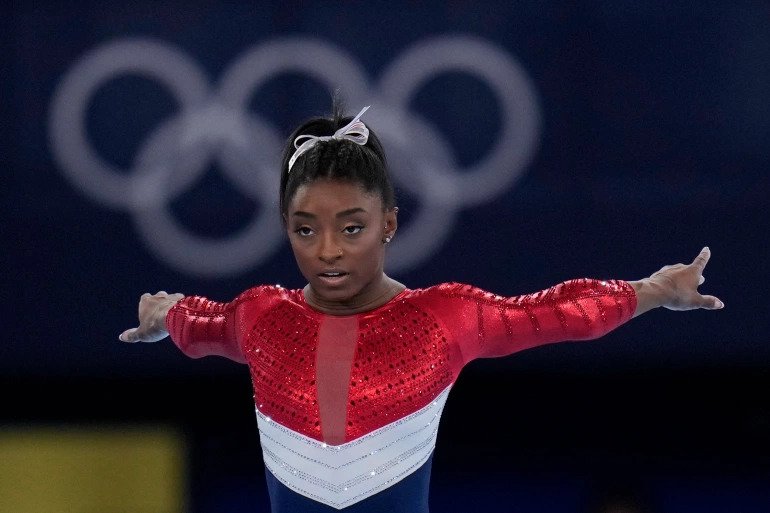All round
How much Olympic athletes earn for winning gold, silver and bronze medals
Winning a gold, silver, or bronze medal is the culmination of years of sacrifice and arduous training sessions concealed from public view.
Toyko hosted over 11,000 athletes, including over 600 from the United States. It’s an elite group, but the climax of a successful Olympic bid makes the effort all the more satisfying for many of those who have spent endless hours training and planning.
While the International Olympic Committee does not pay medalists, several nations award their athletes based on the number of medals they win in the Olympics.
The International Olympic Committee (IOC), which promotes the games, does not award prize money for placing in the top three of an event, but instead distributes medals and sends a “Olympic diploma,” or certificate, to all those who place in the top eight.
Even in the best of circumstances, Olympic competitors frequently struggle to make ends meet, relying on prize money, stipends, sponsorship, and crowdsourcing to fund their goals. Given the physical demands of training and the frequent travel to training camps, a full-time career is almost difficult, and the delayed Games added an extra year of continuous training expenditures.
Trending:
Most Olympic medalists, however, get a monetary award from their local Olympic organization.
According to a COVID-19 impact survey given to 4,400 athletes by the United States Olympic & Paralympic Committee, 59 percent of Olympic aspirants reported earning less than $25,000 during the year of their respective Olympics. A total of 643 Olympic competitors and 94 Paralympic participants took part in the survey.
As part of “Operation Gold,” a USOPC program initiated in 2017, U.S. Olympians who reach the podium are paid $37,500 for each gold medal they win, $22,500 for silver, and $15,000 for bronze. According to CNBC, in team contests, pots are distributed equitably to each member.
Athletes in the United States also get other types of aid, including as health insurance, access to top-tier medical facilities, and college tuition assistance.
According to moneyunder30.com, some countries, especially those with few medals, are significantly more generous with their prize money.
Singapore pays their gold medalists approximately 20 times more than the United States. Players who win their first individual gold medal representing the city-state will earn a cash prize of one million Singapore dollars ($737,000). The prize money is taxable, and recipients must return a portion of it to their respective national sports organisations for future training and growth.
It is similar to how leagues such as the NFL and NBA do not pay players; instead, individual clubs within the league are responsible for providing remuneration. Unlike in other leagues, where clubs must fulfill minimum salaries, there are no Olympic-wide rules for compensating athletes. Instead, individual governments or private parties bear the burden.
Gold is awarded $644,000 in Hong Kong, silver $322,000, and bronze about $161,000.
Medalists from the next two highest-paying countries, Kazakhstan and Malaysia, receive around $250,000 for a gold medal. The host country of the 2020 Tokyo Olympics, Japan, pays athletes who finish on the podium $45,000 for gold, $18,000 for silver, and 9,000 for bronze.
According to Unmish Parthasarathi, founder and executive director of consulting company Picture Board Partners, the sports economy in the United States allows athletes to better monetize their abilities because the majority of it is driven by the private sector.
Medal bonuses are a common way for countries to recognize their top athletes who finish near the top of their particular events.
Team GB does not award prizes, but they do receive an annual training stipend, and UK Sport contributes £125 million in government and lottery funding to assist Olympic and Paralympic teams.
Many national athletic programs in nations like Singapore, India, and elsewhere are driven by governments, who sometimes utilize larger monetary prizes to foster a developing sporting culture, he told CNBC.
Competitors in the games do, of course, profit from corporate sponsorship arrangements, with Usain Bolt earning an estimated $30 million per year while he dominated sprinting.
According to ESPN’s Darren Rovell, Katie Ledecky, who won two gold medals in Tokyo, inked a $7 million contract with swimsuit company TYR in 2018 after winning four gold medals in Rio. Her contract, which is expected to last through the 2024 Olympic Games, was described as one of the “most lucrative” in swimming history by TYR in a June 2018 press release.
Popular Posts:
- Queen’s damning reply to Prince Harry’s ‘what Meghan wants, Meghan gets’ outburst
- Here’s Why Meghan Markle Cannot File Harry Divorce In US
- Meghan Markle ‘escorted out of Prince Charles’ garden party’ in unearthed video
- Here’s Why Meghan Markle Cannot File Harry Divorce In US
- Prince Harry ‘kept asking for more money’ and Prince Charles got ‘fed up’
- Prince Charles ‘deliberately’ left Meghan out of Archie’s birthday message
- Prince Harry and Meghan ‘blamed staff when they didn’t get their way’
- Prince Harry has been ‘brainwashed’, says biographer
- Meghan Markle blogged about Kate’s wedding before claiming she ‘didn’t know much about royals’
- REVENGE: Beatrice’s pregnancy announcement total dig at Meghan Markle
- Damage is done: Prince Harry warned rift with Prince Charles is widening beyond repair
- Meghan Markle Oprah interview claims debunked by own blog post
- Queen and Charles deeply upset with Harry’s rants
- Prince Harry faces Backlash for podcast interview, Duke ‘making too much noise’
- Harry and Meghan are ‘trolling the world’ with hidden photos Archie, says their biographer
- Prince Harry Demands wife Meghan Markle Be Part Of Princess Diana’s 60th Birthday Tribute Or He Won’t Show
- Harry and Meghan are ‘trolling the world’ with hidden photos Archie, says their biographer
- Meghan Markle’s Plastic Surgery
- Meghan and Harry CAN’T do another bombshell interview – ‘Can only do one’
- How Kate Middleton earned the Queen’s respect
- William and Kate prove they are NOT ‘trapped’ despite Harry claims
- Kate Middleton ‘won’t be walked over by Meghan Markle,’ says Jenny Eclair
- Meghan ‘wasn’t too keen’ on living in smaller place than Kate and William after royal wedding
- Meghan Markle was a ‘failure’ in Hollywood, biographer reveals
- Meghan and Harry are trying to start ‘alternate woke Royal Family,’ Expert says





















































3 Comments